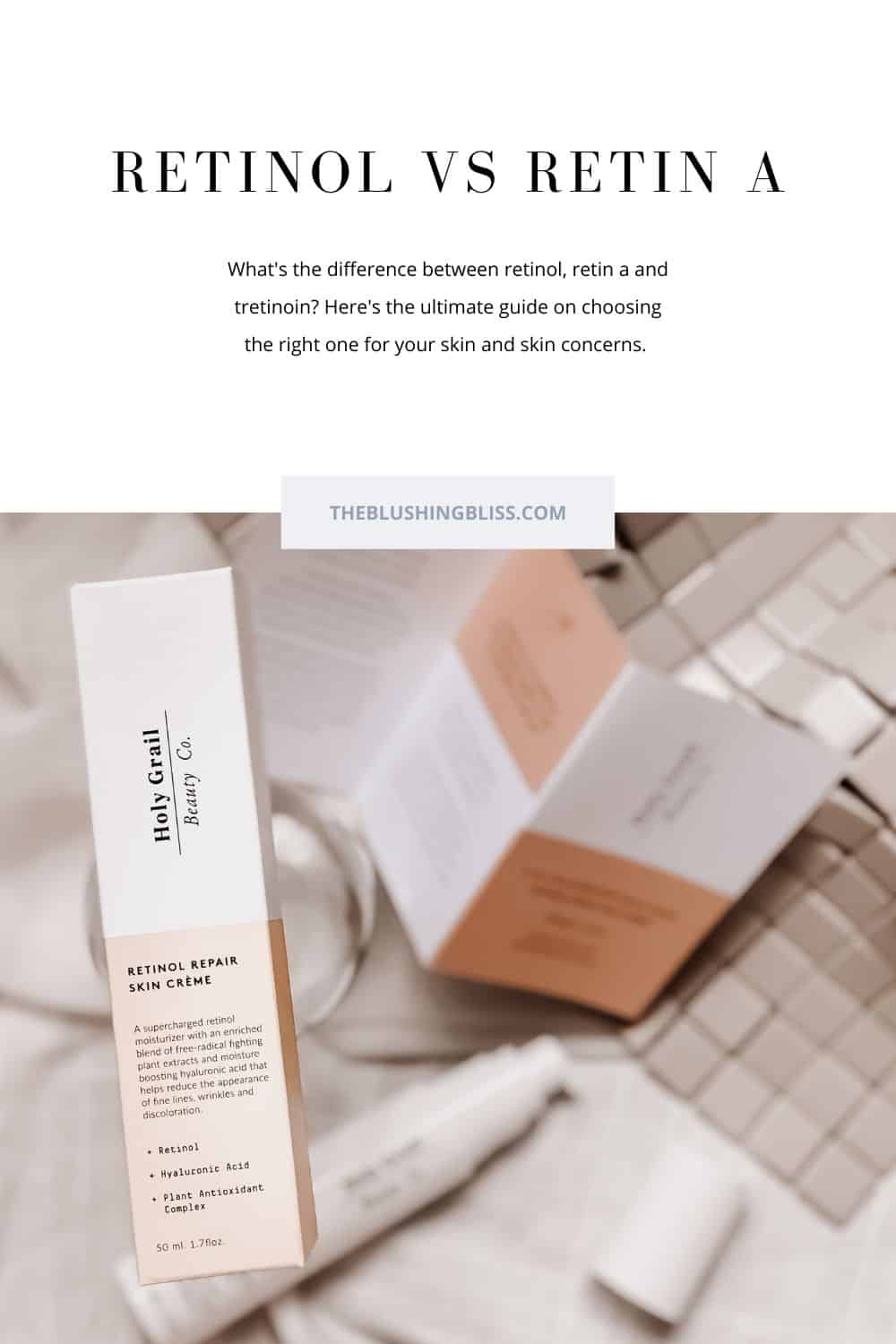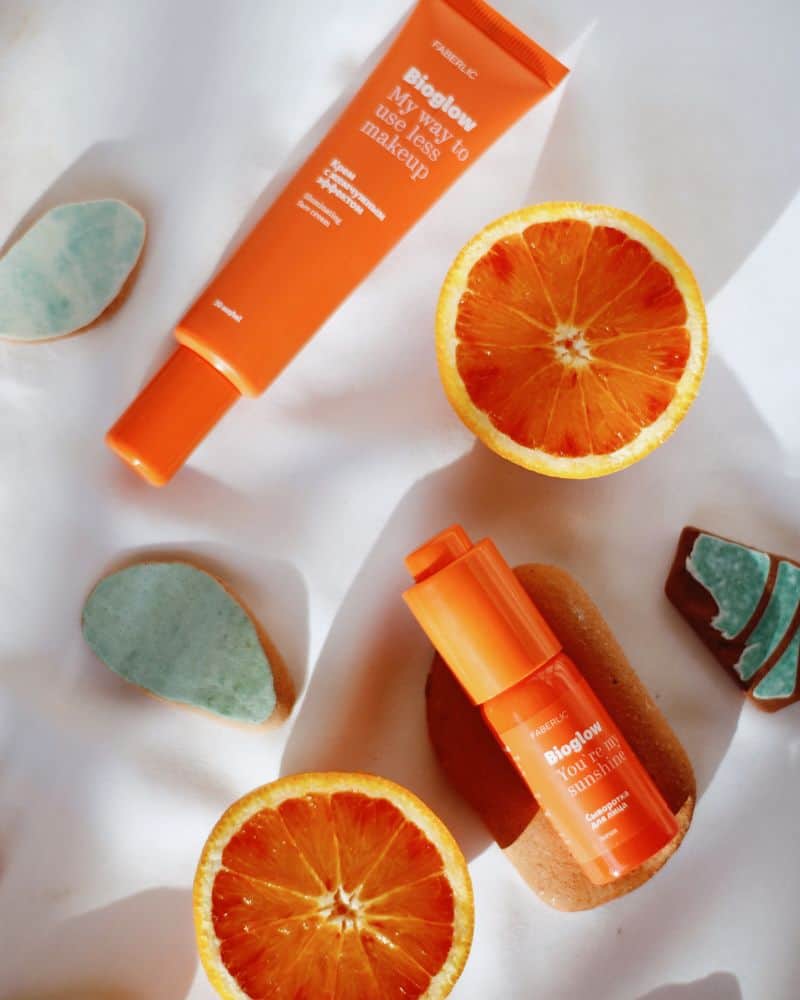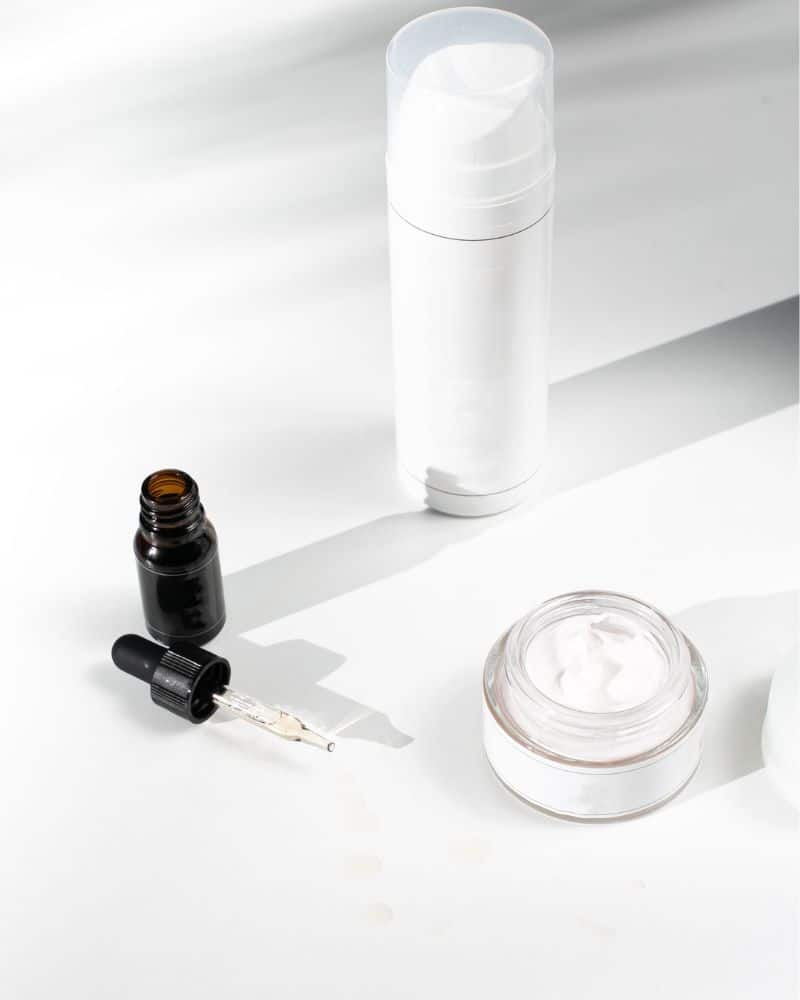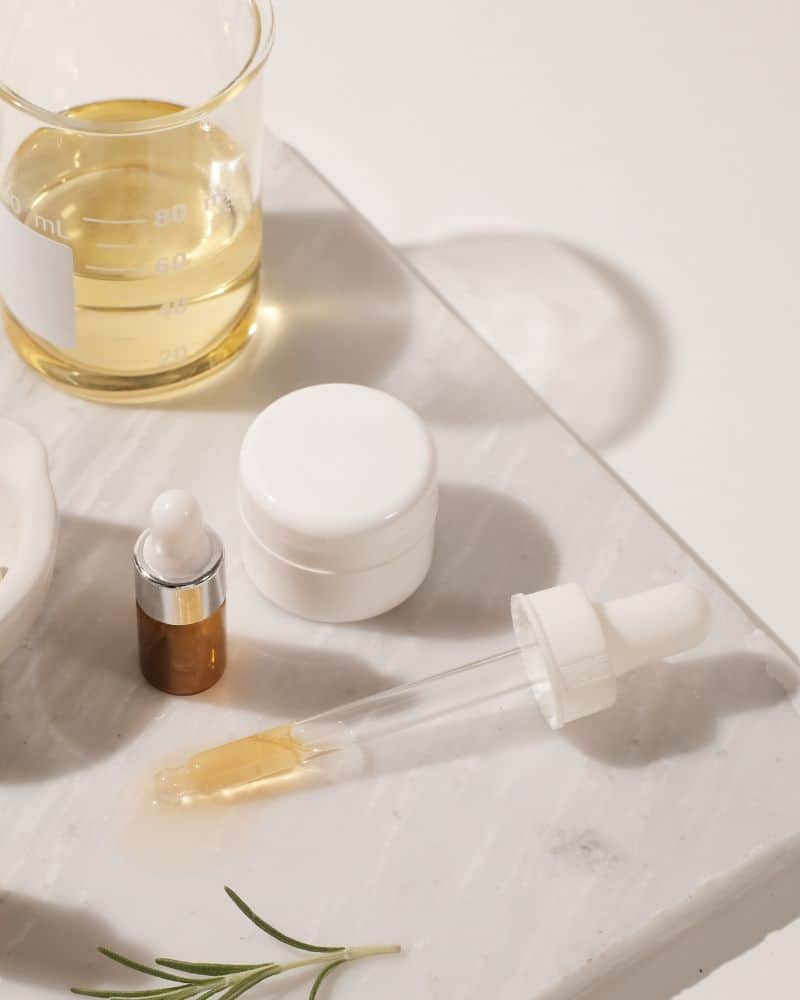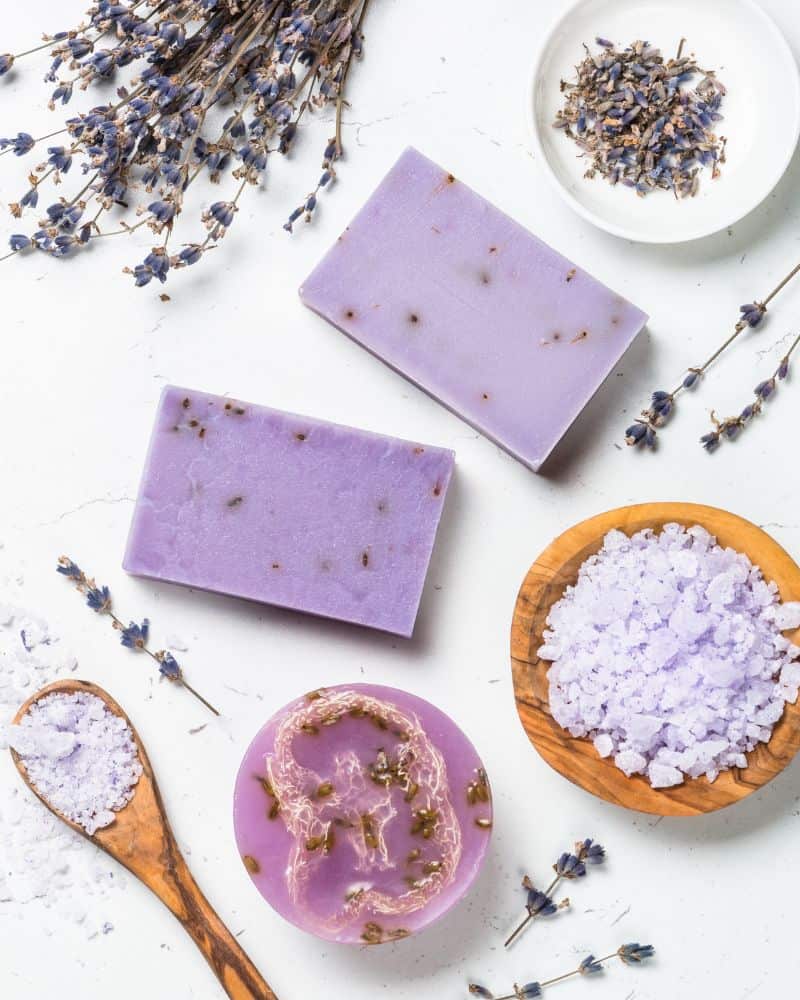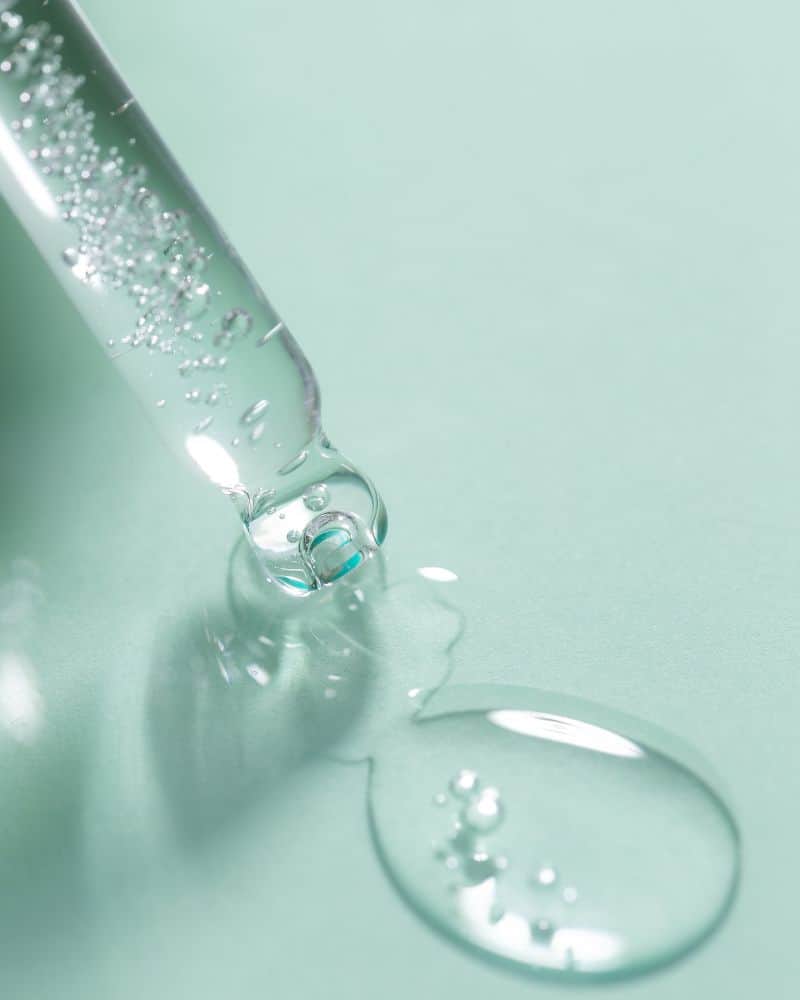Retin A Vs Retinol: What’s The Difference?
This post may contain affiliate links.
Retinoids have been used for decades to improve signs of aging, treat acne and many other skin concerns. They’ve become increasingly popular in recent years, partly in thanks to tele-dermatology and improved over the counter retinoid options. But when you first start looking into retinoids it can get really confusing, fast. Between retinoids, retinol, retin-a and tretinoin, how the heck do you know what the differences are and which one to pick for your skin? In this post, we’ll answer all your burning questions about Retin-A Vs Retinol.
Retin-A vs Retinol is probably the biggest battle in the skincare industry. Which one is better? Some will swear by prescription-only tretinoin. Others sing the praises of OTC retinol. So, how do you choose? Well, I’ve designed this guide to help you understand the difference between retinol and retin a so that you can pick out the best one for you!
What Are Retinoids?
Hang with me, cause this can get confusing. Both retinol and tretinoin belong to a group called retinoids. “Retinoids” is simply an umbrella term for Vitamin A compounds and Vitamin A derivatives.
These compounds basically shed dead skin cells and help our skin cells rejuvenate faster.
Now, there are a lot of different types of natural and synthetic retinoids. Certain retinoids are available OTC, while others are prescription-only.
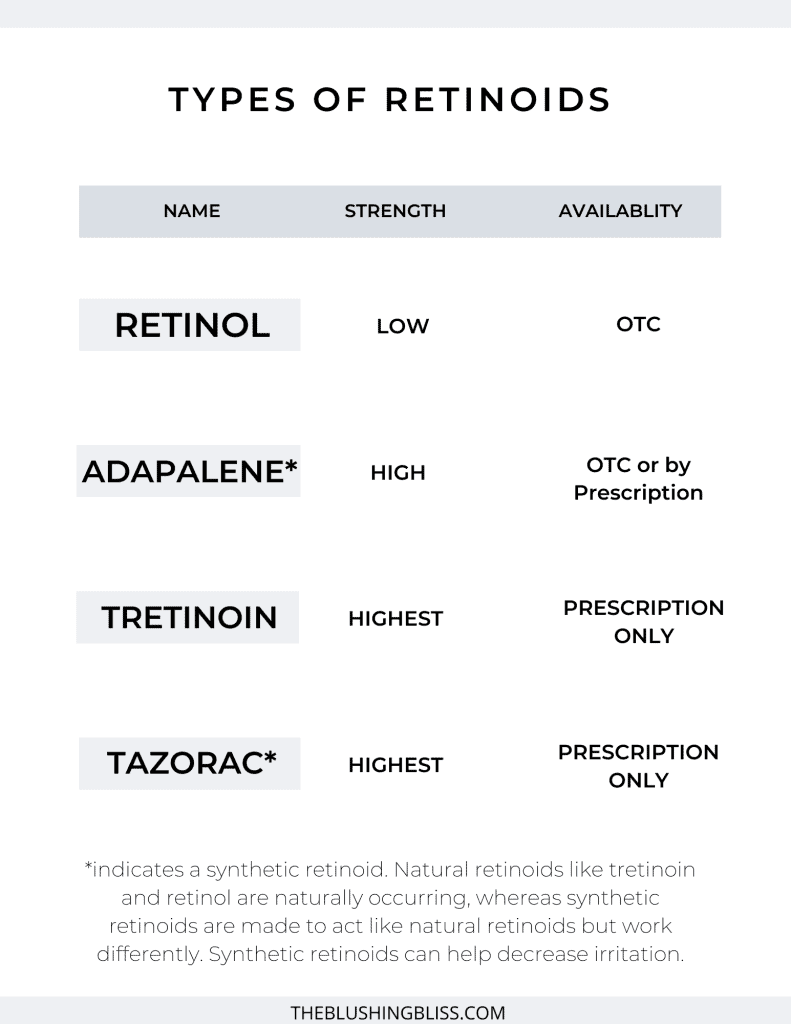
So, retinol vs retinoid – what’s the difference? Retinol is simply a type of retinoid! I know they sound so similar and it can get confusing! Just remember retinoids are just an umbrella term for all types of vitamin a compounds. Whether it’s tretinoin, retin-A or retinol, they’re all types of retinoids.
What Is Retinol?
Retinol
Retinol is a type of retinoid that’s available OTC and can help speed up cell turnover to smooth skin, reduce acne, diminish fine lines and fade hyperpigmentation. It’s weaker than prescription only retinoids like tretinoin or retin-a.
Benefits: stimulates collagen production, unclogs pores, treats and prevents acne, fades acne scarring and hyperpigmentation, smooths rough skin texture, promotes youthful looking skin
Best for: acne, anti-aging, mild hyperpigmentation or PIH, texture issues
How Often To Use: Can be used 1x daily (only at night). Retinol should be introduced gradually into the routine to avoid any extra irritation or dryness. Start off with 2x a week and work up from there
Do Not Use With: Do not use retinol with any other type of chemical exfoliant including vitamin c, glycolic or salicylic acid. Do not use with physical scrubs or washcloths. Avoid drying ingredients like benzoyl peroxide or sulfur if possible while your skin is adjusting
What To Look For: retinol, granactive retinol, retinal, retinyl palmitate
Retinol is an OTC retinoid that helps to speed up skin cell turnover, resulting in brighter clearer and more youthful-looking skin. Retinol is one of the weaker forms of Vitamin A, and therefore, it is more gentle and less irritating, so it’s ideal for those with very dry or sensitive skin or those just starting out using retinoids.
Although retinol is weaker, it still can provide lots of benefits and have great results.
When using OTC retinol products, it’s important to pick out a well-formulated product. For an OTC retinol to be effective, it generally needs to be close to the top of the ingredients list, as well as being packaged in an opaque bottle.
Related post: Granactive Retinoid Vs Retinol – What’s The Difference?
The Problem With Retinol
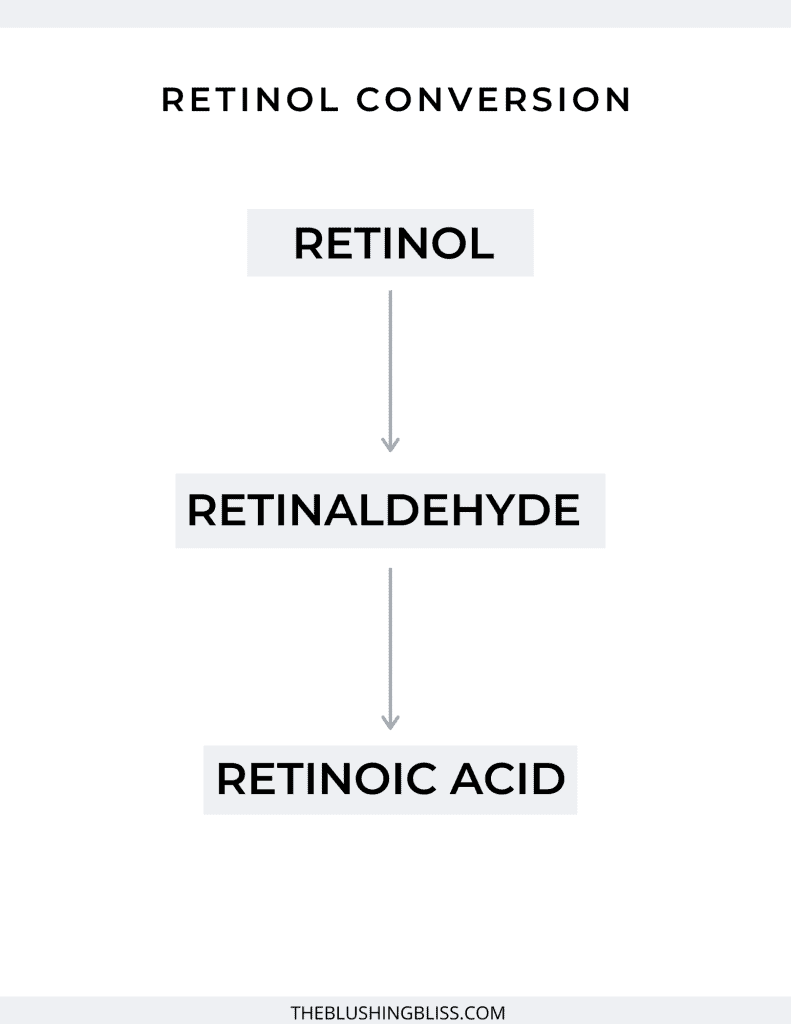
In order for our skin to be able to use retinol, it first has to go through two conversions to be converted to retinoic acid. Retinoic acid is the only form of vitamin a that our skin can use. So, when retinol is applied to the skin, it is ineffective until it gets converted. This conversion can take some time, which is why retinol is less effective than tretinoin (and more gentle/less irritating on the skin).
You see, your skin can only use the retinoic acid form of Vitamin A. Remember what tretinoin is? Retinoic acid! That’s why tretinoin is so much more effective, because you put it on your skin and it can immediately start working.
Retinol Pros and Cons
As with tretinoin, retinol comes with its own pros and cons. It’s important to look at both to decide which is best for your skin.
Many people with sensitive skin use retinol because it’s less irritating. However, just because you have sensitive skin doesn’t mean tretinoin won’t work for you.
I have pretty sensitive skin and am still able to use tretinoin!
Additionally, some people chose to start out with retinol to get their skin used to retinoids before jumping into tretinoin. This can be a great way to introduce retinols into your routine and you will likely experience less side effects this way as opposed to starting with tretinoin from the beginning.
Pros of retinol:
- Available OTC, more accessible
- Gentle/less irritating
- More affordable
Cons of retinol:
- Less effective
- Unstable – degrades easily from heat and light rendering it ineffective
- Not FDA approved to treat acne and help with aging
Who Should Use Retinol
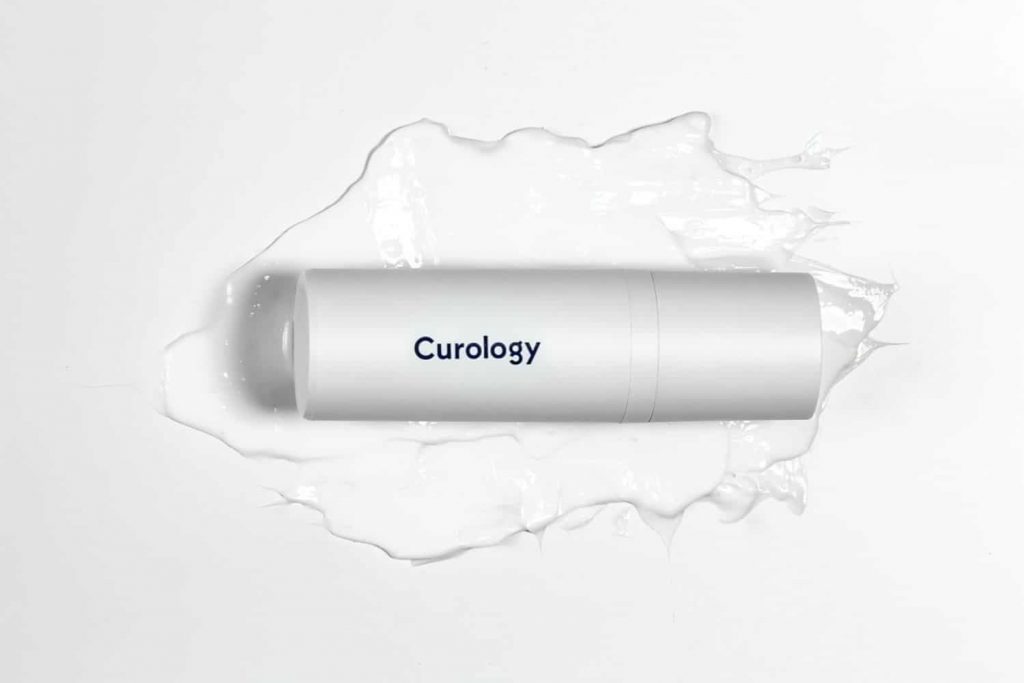
Retinol is a great choice for beginners, those with extremely sensitive skin, or those concerned with cost/availability of tretinoin.
Having used both retinol and tretinoin, retinol definitley has its place in certain routines. Some people may find that it works better for them because it’s less irritating.
However, I personally see the best results from tretinoin. That said, it doesn’t hurt to give retinol a try to see how it works for you. And if you’re not seeing enough results, then you can move up to tretinoin.
Related post: Can I Use Expired Retinol?
What Is Retin-A? What Is Tretinoin?
Retin-A and Tretinoin are a synthetic form vitamin a that’s only available with a prescription. Retin-A is the brand name of the product, while tretinoin is the generic. Retin-A and tretinoin are the same thing.
Tretinoin (or Retin-A) is retinoic acid. The most effective and potent form of Vitamin A. The gold standard in anti-aging and acne. In fact, it’s about 20 times more potent than retinols!
It was first developed as an acne treatment, but it was soon discovered that it has amazing anti-aging properties, too!
Retin-A, or tretinoin, is typically prescribed to treat acne or to help with anti-aging. Retin-A is commonly prescribed for acne treatment, as it’s FDA approved to treat acne and not only can it help clear up the skin, but it also helps to fade acne scarring.
As mentioned above, retin-a is more potent and more effective then OTC retinol. This is because It does not have to be converted by the skin. Once it’s applied, it starts working. However, that does come at a price. Retin A is more irritating than OTC weaker forms of retinol.
Retin-A usually comes in either a cream or gel form and can range in strength. Most doctors will prescribe the lowest strength (0.025%) first and then increase the strength as needed (up to 0.1%).
Pros and Cons of Retin A and Tretinoin
Many people read the side effects of Retin A and it makes them scared to start using it. If you use it properly, you should not exeperience any drastic side effects. All those people that complain about the horrible side effects of tretinoin are likely using it improperly.
That said, there are some things to consider if you’re deciding looking at retinol vs tretinoin and deciding which one to go with.
Pros of tretinoin
- More stable
- More effective
- Stronger formula/more potent
- Scientifically proven
- FDA approved for acne and anti-aging
Cons of tretinoin
- Can be more irritating
- More expensive
- Less readily available/prescription only
Who Should Use Retin A or Tretinoin
Tretinoin is the best option for those who are looking for a powerful acne fighter or anti-aging product to add to their skincare routine. If you want the most bang for your buck, go with tretinoin.
If you have any type of scarring like indented acne scars, you need tretinoin or retin a.
Any doctor can prescribe tretinoin, so you don’t have to see a dermatologist. I’ve found that most doctors are willing to prescribe it. You can also use teledermatology services such as Curology or Apostrophe (both are great options).
Benefits Of Retinol and Retin-A
- Acne – retinoids treat and prevent acne by speeding up cell turnover so dead skin cells don’t get stuck in your pores and lead to acne
- Treat hyperpigmentation – since retinoids speed up skin cell turnover, your skin is quickly getting rid of old skin cells and replacing them with new ones. This helps to fade discolorations like post-inflammatory hyperpigmentation and sun spots.
- Treats shallow or indented scarring – sometimes acne can leave behind indented scars. Retinoids can help with this by stimulating collagen which helps to fill in those scars
- Blackheads – retinoids can also help reduce other forms of acne like blackheads, comedones and clogged pores
- Smooth skin texture – smooths rough skin texture by getting rid of all those dead skin cells that are stuck on the surface
- Stimulates collagen – retinoids help stimulate collagen production which helps to plump skin and keep it looking youthful
- Fine lines & wrinkles – another benefit of collagen production is decreased lines and wrinkles. Retinoids also help smooth lines and wrinkles because they speed up skin cell turnover
- Minimizes pores – since retinoids help to unclog pores, pores will appear smaller since they are not filled with gunk
See, retinoids can do it all! A little retin a cream can do wonders, no matter what your skin concerns are.
Although they have a lot of different benefits, they are most effective at treating acne, fine lines and wrinkles. So, if you need help with those, tretinoin is the gold standard! So what’s the difference between retinoid vs retinol vs retin a? Keep on reading to find out!
Retinol Vs Retin A Side Effects
Don’t be fooled by the magic of retinol and tretinoin. These compounds do come along with side effects, particularly in the beginning. However, don’t let this scare you off! When it comes to retinol vs retin a side effects, the side effects will usually be worse on retin a because it is stronger.
The benefits outweigh the potential side effects and the side effects will subside in a few weeks.
- Irritated skin
- Dry skin
- Flaking or peeling
- Increased sensitivity to the sun
- Redness
If you have acne, you may go through what’s called a tretinoin or retinol purge, which is when you experience an increase in breakouts while the retinoids unclog your pores.
Retinol Vs. Retin A Vs. Adapalene
Since Adapalene (brand name Differin) has become OTC, many people want to know what the differences are between retinol, tretinoin and adapalene. Adapalene was once prescription only, but is now available OTC and is super affordable.
Since it was previously prescription-only, many people wonder is Differin as good as Retin A?
Adapalene is a great option for those with more sensitive skin and who want to get the benefits of tretinoin but don’t have the means to actually get a prescription. Differin is FDA approved to treat acne, but it is not FDA approved for anti-aging. Although it Adapalene does help with anti-aging, it’s not as strong as it’s retin a counterpart.
As far as strength goes: Tretinoin > Adapalene > Retinol
Related post: How To Switch From Retinol To Adapalene
Retinol Vs Retin A Strength
Many people wonder what the differences are between the strengths of retinol, retin a and tretinoin. As we discussed earlier, tretinoin and retin-a are interchangeable. So, the question is retinol versus retin a: which one is stronger?
Retin-a/tretinoin will always be stronger. They are in the pure form of retinoid acid, so as soon as you put it on, it starts working.
How Much Stronger Is Retin-A Than Retinol?
Retin-A is about 20x stronger than retinols! Mostly because of the conversion process retinol has to go through before it starts working.
Retinol Vs Retin-A: How To Choose The Right One For Your Skin
When deciding between Retinol vs Retin-A or Tretinoin, it can be tricky to figure out which one is best for your skin. The best thing to do is to look at what your skin concerns are and that will help you figure out the right product for you.
If you have mild skin concerns like blackheads or clogged pores, uneven skin texture or very faint lines, retinol is a great option and doesn’t come with as many side effects that retin-a and tretinoin have. As long as the issues you are wanting to address are pretty mild and you generally just want to improve your skin, retinol can do everything you need.
If you have acne (including severe cystic or hormonal acne), multiple signs of acne, atrophic acne scarring or hyperpigmentation, prescription retinoids like tretinoin or retin-a will work best for you. You’ll see results quicker and get even better results than you would with OTC products.
Keep in mind that you can always start off with an OTC retinol and work your way up to prescription strength as needed.
How To Use Retinoids
When using any kind of retinoid, whether it’s retinol, tretinoin or Retin-A, you definitely need to take proper steps to ensure you don’t ruin your skin barrier and cause damage to your skin.
When you first start out using retinoids, start off using it only 1-2x a week. Do that for a few weeks then work your way up to 3x a week or every other day, depending on how your skin seems. You can eventually work your way up to using the retinoid every day, as long as your skin can tolerate it.
If you want some more information about using retinoids, check out my posts on how to use tretinoin and how to get through the tretinoin purge.
Retinol Vs Retin A For Acne
Is one or the other better for treating acne?
Prescription retinoids like tretinoin and Retin-A, are FDA approved for treating acne. Because of this, they are held to a higher standard, their efficacy has been proven in treating acne and they are very safely and commonly used.
You may think that because tretinoin is stronger, that it would be more effective than retinol. However, that’s not always the case. Being the stronger counterpart, tretinoin and Retin-A come along with more side effects when using them.
Although they work the same way, some people do need the stronger tretinoin to get clear skin. Tretinoin and Retin-A have been found to have anti-inflammatory benefits, which means they can help treat inflammatory acne like cystic acne. However, some people may not be able to use prescription retinoids because they are too harsh for their skin.
My personal experience with retinol vs tretinoin is that I will always choose tretinoin over retinol. I have tried both and I just see better results with tretinoin.
However, I will say that it takes more time for your skin to adjust, and the adjustment phase can be uncomfortable. You will have the same side effects when starting a retinol (dryness, flaking skin irritation) but they will be much less severe.
With retinol, you may not see as good results than you would with tretinoin. Sometimes stubborn acne needs a very strong retinoid. For example, I used a OTC retinol, when that didn’t work my dermatologist put me on Differin, then tretinoin, and finally up to Tazorac to get a good response.
Bottom line: it’s a personal choice! When deciding between tretinoin and retinol for acne, if your skin is sensitive, start with a retiniol. Or if you have stubborn acne, just go ahead and start the tretinoin.
Retinol Vs Retin A For Wrinkles
Many people have asked me, is tretinoin or retinol better for wrinkles? Like we discussed with tretinoin and retinol for acne, they work the same way, so either option will get you results.
Again, tretinoin is FDA approved for anti-aging purposes, treating and preventing fine lines and wrinkles, etc. That said, you will see better results with prescription retinoids like tretinoin. Tretinoin is essentially the gold standard in anti-aging. So, if you want the best of the best, go with tretinoin.
That said, retinol is still a great option for many people! It’s more accessible, cheaper and you won’t experience as many side effects.
For me, the side effects are worth using tretinoin/retin-a. Not only did it completely clear up my skin, but my pores are clear, blackheads are gone and fine lines have all but disappeared.
Retinol Vs Tretinoin
Retinol, Retin-A and Tretinoin are all types of retinoids. However, retinol is a weaker retinoid than the other two. Retin-A and Tretinoin are actually the same thing – they’re both retinoic acid. Retin-A is a brand name, while Tretinoin is the generic name.
Retin A vs Retinol vs Retinoid
They all sound the same don’t they? Remember from earlier, Retinoids are the class of vitamin a compounds, so it’s an umbrella term for retinol, retin-a, tretinoin, etc. Retin-A is simply the prescription-only retinoic acid. Retinol is the weaker, OTC retinoid. Both retin-A and retinol are retinoids.
Which Is Better Retinol or Retin-A?
Retin-A, or tretinoin, is stronger than retinol, so in general it’s better. However, there are times when retinol can make more sense for a person. For example, if you only have mild issues you would like to improve or you have very dry/sensitive skin, retinol could be better than tretinoin in your case.
Retinol Vs Retin-A Vs Tretinoin – Similarities and Differences
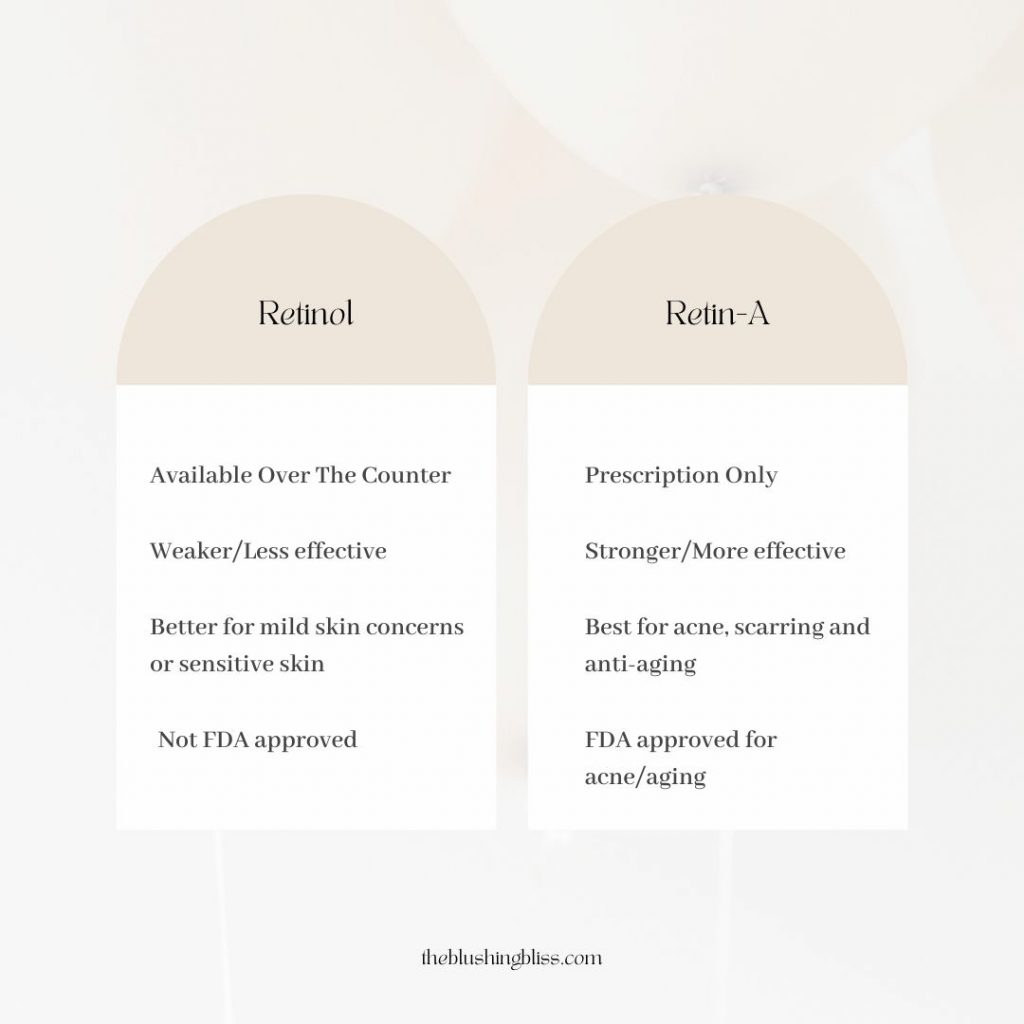
Retinol
Retin-A/Tretinoin
Retinol Vs Retin A Vs Tretinoin FAQ’s
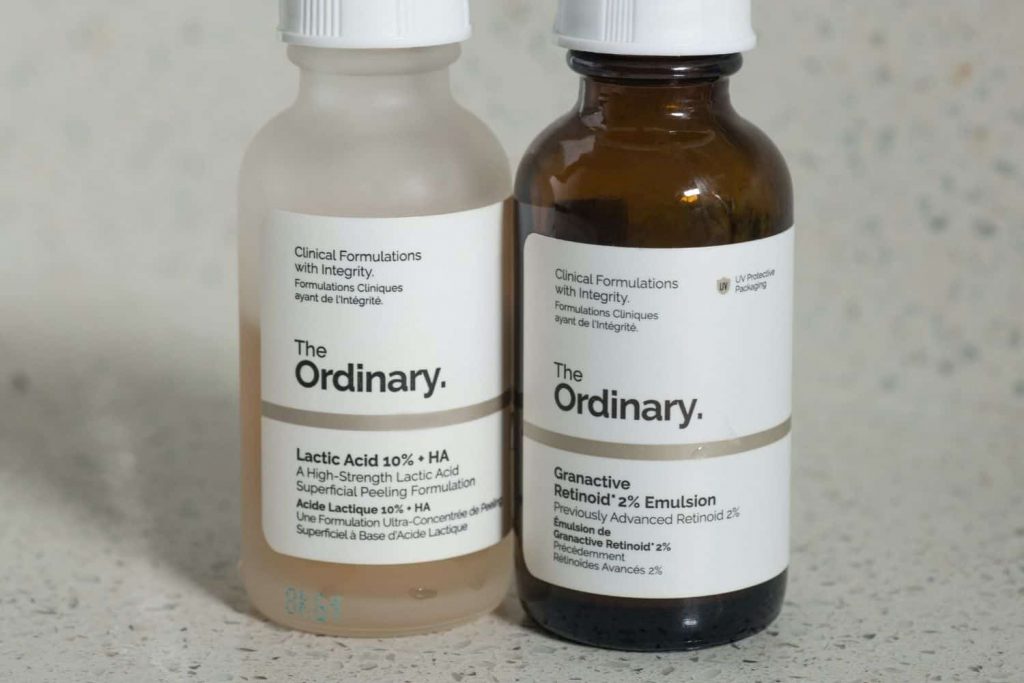
Is Tretinoin The Same As Retinoid?
Tretinoin is a retinoid. Retinoids are the class of vitamin a substances. Retinol, tretinoin, retin-a, tazorac, adapalene, Differin (and any other brand names of tretinoin) are all classified as retinoids.
Is Retinol As Effective As Tretinoin?
Short answer, no, retinol is not as effective as tretinoin. Retinol is a weaker form and doesn’t start working on your skin until it’s convered into retinoic acid. That’s not to say that retinol won’t get your results, but it just all depends on your skin type and what your skin issues are.
Retinol may be the better option for you if you have particularly sensitive skin. And if you’re dealing with severe acne or lots of scarring, it’s best to just start with the prescription retin a vs retinol.
What Should You Not Use With Tretinoin & Retinol?
I’m going to dive deep into how to use tretinoin correctly, but for now, here’s some things you should not use with tretinoin or retinol:
- benzoyl peroxide
- alcohol
- fragrances
- sulfur
- AHA/BHA
Again, this is a super simplified version, and if you want to use other chemical exfoliations in your routine, you totally can, just check out my post on how to use them all together!
Can I Use Retinol and Retin A Together?
No, you do not want to use Retin- Awith retinol. Although they do the same thing, you may think using both would get you better results. You only need one or the other. Not both. Adding both will only ruin your skin barrier. Trust me. Less is more when it comes to retinol and retin a.
Does Tretinoin Age Your Skin?
Many people claim that you shouldn’t start using tretinoin or retinol at a young age because it can age your skin. They think that because tretinoin thins the skin it can cause it to age quicker. This is simply not true.
Remember, tretinoin is FDA approved for anti-aging.
What Is The Difference Between Tretinoin Vs Retinol?
Tretinoin and retinol are both types of retinoids, but tretinoin is a stronger, prescription-only retinoids. Retinol is weaker and is available OTC. But since they’re both retinoids, they do the same thing: speed up cell turnover. One is just stronger than the other.
What Products Can’t Be Used With Retinoids?
When using retinoids, you want to be mindful of other actives in your skincare routine. While retinoids play nice with most ingredients, using too many actives can damage your skin barrier and cause irritation and dryness. Any kind of active ingredient (and especially chemical exfoliants) can cause issues. AHA, BHA, Vitamin C and other drying ingredients like benzoyl peroxide or sulfur may lead to irritation if used with retinoids like retinol or retin a.
Is Retin-A considered A retinol?
No, Retin-A is not considered a retinol, they are both two different things, but they do belong to the class of retinoids, so retin-a and retinol are considered retinoids.
Is retinol as good as tretinoin?
While retinol is not as strong or powerful as tretinoin or Retin-A, it can still be a great option, especially for those with dry or sensitive skin types or those just starting out with retinods.
Can I Use Tretinoin With Retinol?
No, retinol and tretinoin should not be used together! You only need one type of Vitamin A at a time – either tretinoin or retinol but not both.
What’s Better Retinol or Retin-A?
It usually comes down to personal preference, but Retin-A is stronger and you can get faster/better results with tretinoin or retin a. However, if you have sensitive skin, it may be best to use retinol, or look into Granactive Retinoids which are stronger than traditional retinols but come with less irritating side effects.
Retinol Vs Retin-A: Bottom Line

Retinoids are a skincare staple and belong in everybody’s routine. The hard part is picking out the right one for you!
If you’re having a hard time choosing between retinol and retin-a, here’s a little help:
- If you are new to retinoids or have sensitive skin….go with OTC retinols
- If you are wanting something powerful to treat stubborn acne, scarring or combat aging…go with retin-a
You really cannot go wrong with retinol or retin-a. They are both well-researched and effective ingredients. If you aren’t sure, just try an OTC retinol first. After a few months, if you think you can use a little more power, try getting a prescription for retin-a.
Retinol Vs. Retin A: My Thoughts
I’ve been using retinoids for over 10 years, and I’ve pretty much used them all a time or two. Personally, I’m a firm believer in the prescription strength tretinoin because you will see more drastic results (and see them much faster!).
Retin A has completely changed my skin! I went from being a self-conscious teenager riddled with cystic acne and scarring to being a confident twenty-something who doesn’t have to wear makeup anymore!
If I had to pick, I would always pick retin-a or tretinoin just because they are stronger and you will get the best results with those. However, there are times with retinol makes sense. It all just depends on the person, skin concerns, skin type and budget.
I’d love to know if you use retinol or tretinoin, and if so, what benefits have you noticed with your skin?
Retinol Vs Retin A: Wrap Up
So is Retin-A different from retinol? Although they are both retinoids, Retin-A and retinol are both very different from each other. When it comes to strength and efficacy, retin-A (or tretinoin) will always win. However, that does come with some side effects! Retinol is still very effective and is a great option for those new to retinoids or those with very sensitive skin.
Are you a die-hard retinol lover, or do you only use the gold standard tretinoin? Let me know down below! If you couldn’t tell, I’m a die-hard tretinoin cream gal myself.
Related To Retinol Vs Retin A:
- How To Use Tretinoin
- What Happens When You Stop Using Tretinoin
- Does Tretinoin Expire?
- How To Reduce The Tretinoin Purge
- Occlusives: Aquaphor Vs Vaseline
- Is Curology Worth It?
- Retinol Vs. Hyaluronic Acid: What’s The Difference?
- Rosehip Oil Vs Marula Oil For The Skin
